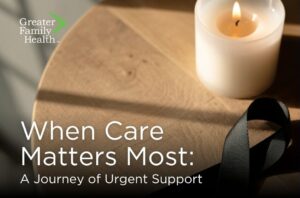You might have read in the news about a new water pipes replacement ordinance that the City of Elgin recently passed. This new ordinance is called the Voluntary Lead Water Service Pipe Replacement Program. The purpose of the ordinance is to reduce exposure to lead in your water as a result of planned construction projects by the City of Elgin. To read more about the ordinance click here.
In addition to selecting one of the three available options, we encourage you to talk to your Primary Care Provider (PCP) about ways to reduce exposure to lead and make sure that your children have been screened for lead. If you live in an area that is affected by planned construction and emergency construction projects, or in an older home, it is important that you also test your water for lead. The City of Elgin can help connect you with a certified lab that can test your water. For more information about lead tests call 311 or 847-931-6001.
Prolonged lead exposure, even in small amounts, can cause serious health issues. Lead exposure in children is of special concern, since it can affect mental and physical development. Exposure to very high levels of lead can be fatal. [i]
The U.S. Preventative Service Task Force recommends that children be screened for elevated lead levels at least once at the age of 12 months when certain risk factors are present in a child’s life. Risk factors include: living in a house built before 1950 and living in a community where the percentage of elevated Blood Lead Levels in 1- and 2- year-olds is 12%. [ii]
If your child is a patient at Greater Family Health, your child will receive a lead screening at the appropriate age as described above. Please feel free to call Greater Family Health at 844-599-3700 for any questions and to make an appointment with one of our pediatricians for your child’s lead screening.
[i] Lead Poisoning. Mayo Clinic. Accessed 2/12/2019
https://www.mayoclinic.org/diseases-conditions/lead-poisoning/symptoms-causes/syc-20354717
[ii] Lead, (Age + 9-12 months), Due for Screening. Agency for Healthcare Research and Quality. Accessed 2/12/2019
https://healthit.ahrq.gov/health-it-tools-and-resources/pediatric-resources/pediatric-rules-and-reminders/lead-age-9-12-months-due-screening




